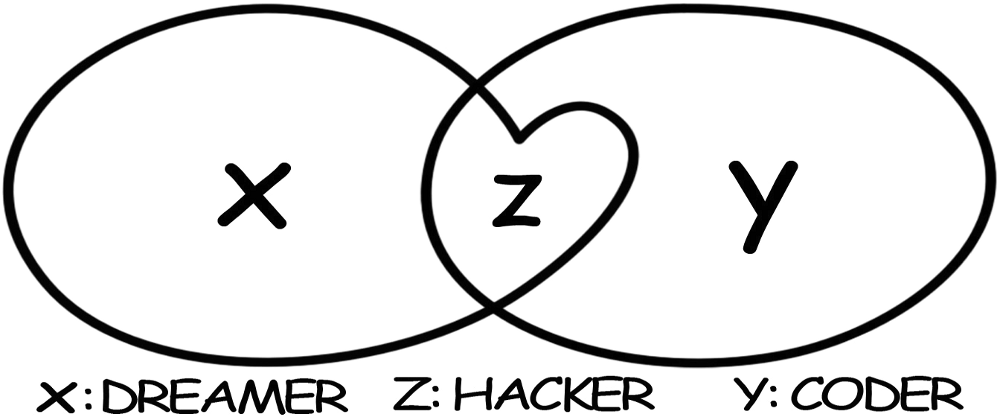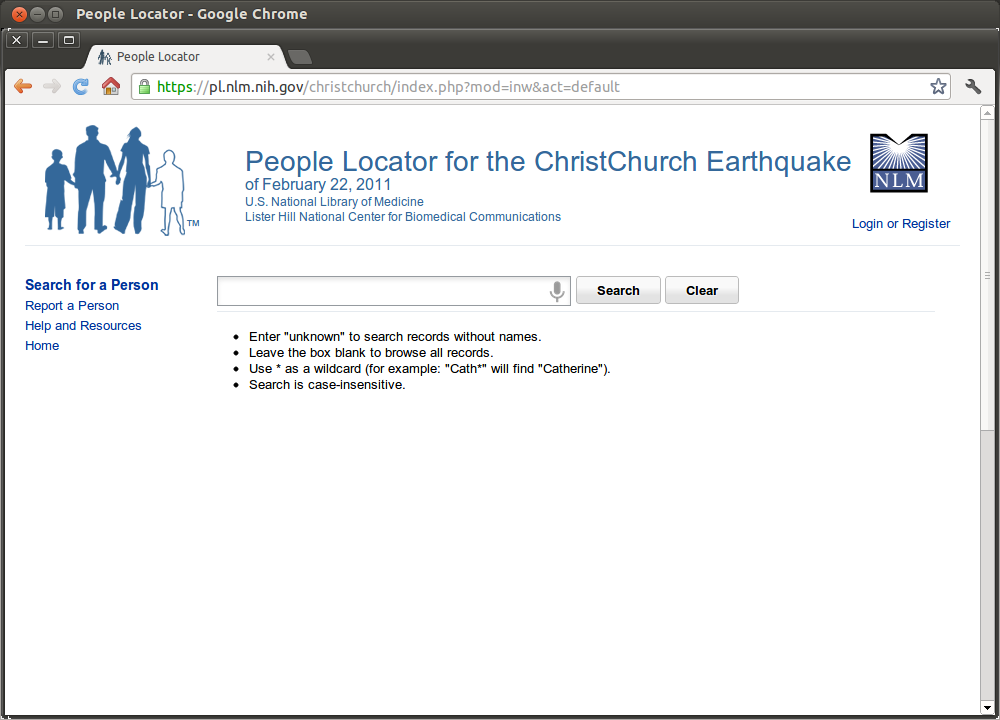Coding and Dreaming
Codemotion
Milan
Nov. 21, 2015
http://talks.php.net/cm1Rasmus Lerdorf
@rasmus
20 Years of PHP!??
1993
#include <stdio.h>
#include <stdlib.h>
#include <ctype.h>
#include <string.h>
#define ishex(x) (((x) >= '0' && (x) <= '9') || ((x) >= 'a' && \
(x) <= 'f') || ((x) >= 'A' && (x) <= 'F'))
int htoi(char *s) {
int value;
char c;
c = s[0];
if(isupper(c)) c = tolower(c);
value=(c >= '0' && c <= '9' ? c - '0' : c - 'a' + 10) * 16;
c = s[1];
if(isupper(c)) c = tolower(c);
value += c >= '0' && c <= '9' ? c - '0' : c - 'a' + 10;
return(value);
}
void main(int argc, char *argv[]) {
char *params, *data, *dest, *s, *tmp;
char *name, *age;
puts("Content-type: text/html\r\n");
puts("<HTML><HEAD><TITLE>Form Example</TITLE></HEAD>");
puts("<BODY><H1>My Example Form</H1>");
puts("<FORM action=\"form.cgi\" method=\"GET\">");
puts("Name: <INPUT type=\"text\" name=\"name\">");
puts("Age: <INPUT type=\"text\" name=\"age\">");
puts("<BR><INPUT type=\"submit\">");
puts("</FORM>");
data = getenv("QUERY_STRING");
if(data && *data) {
params = data; dest = data;
while(*data) {
if(*data=='+') *dest=' ';
else if(*data == '%' && ishex(*(data+1))&&ishex(*(data+2))) {
*dest = (char) htoi(data + 1);
data+=2;
} else *dest = *data;
data++;
dest++;
}
*dest = '\0';
s = strtok(params,"&");
do {
tmp = strchr(s,'=');
if(tmp) {
*tmp = '\0';
if(!strcmp(s,"name")) name = tmp+1;
else if(!strcmp(s,"age")) age = tmp+1;
}
} while(s=strtok(NULL,"&"));
printf("Hi %s, you are %s years old\n",name,age);
}
puts("</BODY></HTML>");
}1993
use CGI qw(:standard);
print header;
print start_html('Form Example'),
h1('My Example Form'),
start_form,
"Name: ", textfield('name'),
p,
"Age: ", textfield('age'),
p,
submit,
end_form;
if(param()) {
print "Hi ",em(param('name')),
"You are ",em(param('age')),
" years old";
}
print end_html;1994
<html><head><title>Form Example</title></head>
<body><h1>My Example Form</h1>
<form action="form.phtml" method="POST">
Name: <input type="text" name="name">
Age: <input type="text" name="age">
<br><input type="submit">
</form>
<?if($name):?>
Hi <?echo $name?>, you are <?echo $age?> years old
<?endif?>
</body></html>PHP Announcement June 8, 1995
Posted to comp.infosystems.www.authoring.cgi
Subject: Announce: Personal Home Page Tools (PHP Tools)
Announcing the Personal Home Page Tools (PHP Tools) version 1.0.
These tools are a set of small tight cgi binaries written in C.
They perform a number of functions including:
. Logging accesses to your pages in your own private log files
. Real-time viewing of log information
. Providing a nice interface to this log information
. Displaying last access information right on your pages
. Full daily and total access counters
. Banning access to users based on their domain
. Password protecting pages based on users' domains
. Tracking accesses ** based on users' e-mail addresses **
. Tracking referring URL's - HTTP_REFERER support
. Performing server-side includes without needing server support for it
. Ability to not log accesses from certain domains (ie. your own)
. Easily create and display forms
. Ability to use form information in following documents
Here is what you don't need to use these tools:
. You do not need root access - install in your ~/public_html dir
. You do not need server-side includes enabled in your server
. You do not need access to Perl or Tcl or any other script interpreter
. You do not need access to the httpd log files
The only requirement for these tools to work is that you have
the ability to execute your own cgi programs. Ask your system
administrator if you are not sure what this means.
The tools also allow you to implement a guestbook or any other
form that needs to write information and display it to users
later in about 2 minutes.
The tools are in the public domain distributed under the GNU
Public License. Yes, that means they are free!
For a complete demonstration of these tools, point your browser
at: http://www.io.org/~rasmus
--
Rasmus Lerdorf
rasmus@io.org
http://www.io.org/~rasmusC API for the Web
void Cos(void) {
Stack *s;
char temp[64];
s = Pop();
if(!s) {
Error("Stack error in cos");
return;
}
sprintf(temp,"%f",cos(s->douval));
Push(temp,DNUMBER);
}And you could then use it like this:
<html><head><title>Cos Example</title></head>
<body><h1>Cos Example</h1>
<?echo Cos($input)>
</body></html>Focus on the Ecosystem
- LAMP wasn't an accident
- Robustness, Performance and Security
- ♥ shared hosting ISPs
Scale
- Scaling up is expected
- Scaling down is surprisingly hard
- Doing both is rocket science
Performance
- mod_php
- shared-nothing perfect sandbox model
Robustness
- SQL LIMIT clause
- Promote Prefork shared-nothing model
Security
- max_execution_time
- memory_limit
- safe mode
What was he thinking?
- Case insensitive function names?
- Naming inconsistencies?
- What's with the $ signs?
- Globals?
- register_globals?
- magic_quotes?
OMGWTFBBQ?
array_search($needle, $haystack);
strstr($haystack, $needle);
in_array($needle, $haystack);
substr_count($haystack, $needle);
array_key_exists($needle, $haystack);
strchr($haystack, $needle);




Work on things that matter (to you)
Sense of Purpose
The Purpose Economy: How Your Desire for Impact, Personal Growth and Community Is Changing the World
by Aaron Hurst
We are running out of things that can be solved in isolation with our keyboards





